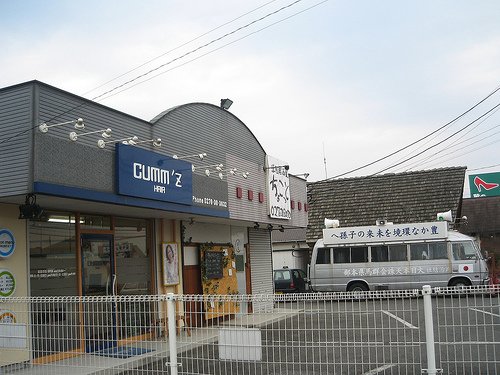Today is a holiday in Japan, Seijin-no-hi, or Coming of Age Day. Venture into any Japanese city right now and you’ll see hundreds of 20-year-olds decked out in the finest kimonos and sparkling new suits, greeting each other and taking group photos together. In Japan, the official age of adulthood is 20 (as commemorated in our wacky “you must be 20 years old to purchase tobacco and alcohol” T-shirts), and today is a special day to mark their official debut as shakai-jin (lit. “society-people”), or full-fledged members of society. Today, 20-year-olds throughout the country will endure long speeches by elderly community leaders, have lunch with friends, and go drinking in the evenings to enjoy their new freedom. For parents it’s a proud day too, and doting fathers are all too happy to plunk down $5000 for a gorgeous kimono that their daughters will in all likelihood wear only once. Like many aspects of Japan, Coming of Age Day has been around for centuries — in the old days women celebrated turning of age by dying their teeth black for the first time.
Each language has its own unique phonetic features and its own potential for dajare (dah-jah-REH), or bad puns, which are called dada-jare in my family because I’m the Dad and I usually make the bad puns (which is a pun in itself, really). In Japanese there are some silly conventions used in advertising that are unique to the language, which are interesting for a gaijin to observe and catalog. First of all, the word zo (zoh、増) means “more” (as in “50% more free”), but it’s also the word for elephant (像)– hence, it’s not uncommon for a TV commercial to make use of elephants to reinforce the image of getting more free buy buying such-and-such brand. Similarly, rakuda (駱駝)is the word for camel, but it also means “[this] is very comfortable and convenient” (楽だ), so every few years some company or another makes a TV commercial featuring camels basking in comfort because of some product. Dogs say “woof!” in English, but to the Japanese the sound is “wan!” and some companies create cute dog characters showing that they’re “number wan” in their respective industries. Finally, the word mou (moh) means “already” but it’s also the local version of “moo” — and so, it’s common for commercial messages to be communicated using cows saying things like, “Stop wasting your money on brand X, already!” Those Japanese can be so goofy.
We interrupt this J-List update to bring you the latest news in right-wing politics, Japan style. One of the downsides to living next door to the mayor of a Japanese city is, every once in a while ultra-conservatives will park their loudspeaker cars in front of our house and blast the neighborhood with anti-mayor threats and slogans, which is what they’re doing right now. Japan’s right-wingers are not unlike the KKK in the U.S., making use of freedom of speech laws to get their political point across despite being universally ignored by all reasonable people. This time they’re howling about the project to tear down our city’s perfectly good Ferris Wheel and erect a new one two kilometers to the north, so it’ll be visible from the freeway as people drive by, essentially the municipal equivalent of unnecessary surgery. “Come out and face us, Mayor Yanai!” they’re shouting through the loudspeakers. “We were stupid to make a person like you our mayor!” If you’ve ever seen any of the films of Juzo Itami such as “Minbo, or the Gentle Art of Japanese Extortion,” you know how comical Japanese right-wing yakuza types can be, with their giant trucks and their military uniforms and their incessant banzais to the Emperor while playing the theme song to the old Space Cruiser Yamato anime. Silly as they are, today is the first time I find myself in perfect agreement with them, since I also oppose the needless construction project. How do you say “pork barrel” in Japanese?
J-List loves to bring you a slice of Japan’s amazing pop culture with every update. We’re especially fond of Japan’s tradition of manga comics, and stock hundreds of titles, including the outstanding English-translated manga magazine, Comic AG, one of the best values you’ll ever see. In additional to being available in single issues, you can get a revolving subscription so each issue is sent to you automatically. Or order AGSET, sets of 5 comics for a discount, also very popular. Why not browse our manga pages now?
















